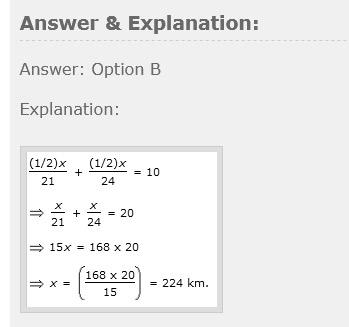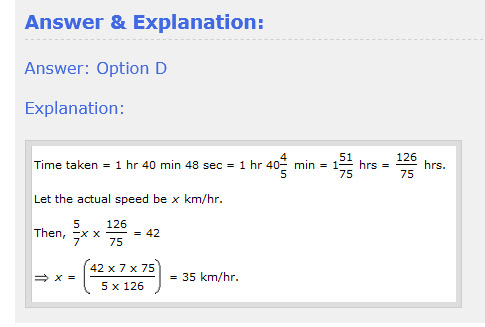
A math aptitude or reasoning test isn’t an authentic aptitude test because aptitude assesses your ability to learn. Tests that are presently called math aptitude tests are actually math assessment tests.
They assess your knowledge of mathematics and not your ability to learn it.
You can expect what employers call a math aptitude test if you are applying for a job that involves financial data, handling money, billing, receivables, or customer accounts.
You don’t need to worry if your math skills aren’t the best because most math aptitude tests evaluate your knowledge of common mathematical skills like addition, subtraction, multiplication, division, decimals, percentages, and fractions.
With knowledge of these you can do well.
Whether you want to improve your mathematical skills on the math psychometric test or you just desire to develop your knowledge of math, you should be rest assured that you are on the right page for the right information.
The information on this post will tell you everything you need to know about how to excel on the math aptitude test.
20 Important Facts about Math Aptitude Test you need to Know
Here are important facts and tips you need to know about math aptitude or reasoning test to help you perform well in it:
- What is math aptitude test?
A math aptitude or reasoning test helps employers to measure the basic and advanced math skills of job applicants.
The time and complexity level of each test may differ according to work specifics.
The results of these tests help discover and employ potential prospects who have demonstrated unique math tests compared to other candidates, and filter out those with less desirable math skills.
2. What is the purpose of the math aptitude/reasoning test?
A math aptitude test can vary in purposes depending on who is conducting the test and what ages are taking it.
Children in first grade who are taking the math assessments aren’t necessarily assessed if they will grow up to work in a computer science or engineering profession, but instead are most likely looking to see how able they can learn basic skills like numeracy.
However, a company that is administering a mandatory math skills test is measuring the potential employee’s aptitude for success in a math-related position.
In addition, both employers and teachers can use the math aptitude test to evaluate people’s strengths and areas for improvement in a condition that requires mastery of mathematics.
3. Why is the math aptitude/reasoning test used for training and employment?
The math aptitude test is preferred by companies to predict job performance and the ability of a candidate to do extremely well instead of the traditional face-to-face interview.
Employers depend on the math aptitude test to measure the abilities and competencies of a candidate.
Trainers also use this test to assess the skills of a company’s existing workforce in math.
4. How is the math aptitude test used in recruitment?
Depending on the job role, the math aptitude test doesn’t only cover basic math problems but also goes into complex concepts.
The questions are presented in the form of problem-solving and objective-type questions.
5. How are the math aptitude test results used by companies?
The results of the math aptitude test are reliable, accurate, and impartial. Recruiters make use of them to get a clear idea about a candidate’s math skills and to identify the appropriate candidate for the job profile.
6. The math aptitude test is used to assess math skills for domain-specific job profiles
Candidates who don’t have the right math skills required for the role they are applying for will lead to poor quality work output.
The questions of the math aptitude test – such as algebra, statistics, number/alphabetic sequences, data interpretation through figures or graphs, profit and loss, probability, permutations & combinations, etc. are used for evaluating candidates applying for different job vacancies.
The skills of candidates for entry-level roles are assessed with the math aptitude test for entry-level jobs and advanced positions like financial planners, program analysts, software testers, investment analysts, and statisticians.
7. Using web-enabled devices, remote navigation, and auto-evaluation options on the math aptitude test
Using web-enabled devices, remote navigation, and auto-evaluation options on the math aptitude test will reduce the time and effort required for recruitment.
Recruiters can also identify candidates with the right math skills and that can be perfect for the needs of a specific department or team.
The recruiter can set the question types and difficulty level of the math aptitude test to also customize the hiring according to particular job role requirements.
8. The math aptitude test is used to develop the existing workforce
Recruiters use the math aptitude test to develop their existing workforce, using the test results to open up the opportunity to provide enough training and bridge any skill gaps in the present employees.
As the organization changes, this provides ways to leverage the talent of new and existing employees.
9. The online math aptitude test platform is making a significant impact in the world of recruitment
The online math aptitude test platform like MeritTrac is adopted by corporate organizations that need the idea of using online tools for identifying skilled candidates.
The systematically backed platform for math aptitude tests helps companies to select the right fit by offering easy test administration and assessment.
10. How can you maintain a constant memory of mathematics?
Mathematics is very easy to forget. Going into the exam with only what you remember from high school is a sure-fire way to score low and enough reason for your application to be rejected.
You need as much practice as possible because of how fast-paced mathematics is programmed.
When you study well you will develop the familiarity needed for excellence for you to efficiently produce remarkable results.
11. What is the content of the math aptitude test?
The content of the math aptitude test is standard based on the type of exam administered, although not every test will contain the same questions.
For instance, grade-level math knowledge in areas such as geometry, algebra, data analysis, and number operations is required from an elementary or high school student who is assessed based on school-level skills.
However, this varies in a place of work as the math aptitude test is less likely to take on wide topics like numeracy.
This test may rather cover cognitive abilities in learning about and working out mathematical problems, clerical aptitudes, or perceptual competencies.
The math aptitude test administered for recruitment purposes usually focuses on content that is relevant to the job like engineering or computer science.
12. Math test takers may be asked to take the standardized student test
When a student’s aptitude for mathematics learning is assessed, the student may be asked to take a standardized assessment.
Teachers can use these scores based on statistics to know how well a student is doing compared to national or state norms for the grade level and age.
Different regions may evaluate students’ learning in mathematics in reference to expected educational standards at the state level.
For example, the state of Washington uses its Measurements of Student Progress exam to evaluate the children’s abilities against the mathematics standards.
On a wider level, the National Assessment of Educational Progress measures elementary and middle school students all over the United States in algebra, geometry, operations, statistics, measurements, and number properties.
13. Career-oriented math aptitude tests
There is a utilization of career-oriented math aptitude tests in both educational and workplace environments.
These tests may be used by schools and teachers at the secondary or post-secondary levels to evaluate how students’ mathematical abilities are compared to potential career paths.
The mathematical reasoning parts of these tests screen the test taker’s knowledge and ability to function in a math-related profession.
The individual student’s ability to work in a field that requires a high degree of mathematics skills may be assessed by the guidance counselors in high schools or college advisors, such as engineering.
In addition, hiring organizations may use this type of test to determine if the job candidate can handle all of the job’s requirements.
14. The difficulty of the math aptitude test
Psychologists make use of the math aptitude test to identify the cognitive development of candidates.
The test is known for its difficulty and is utilized by companies, agencies, universities, etc.
The difficulty of the math aptitude test differs depending on the recruiters and the criteria of the company you are applying to.
15. Basic math skills are most likely the most common aspect of every pre-employment aptitude testing
Math skills are essential in the recruitment world for two key reasons. The first reason is that a lot of positions require basic knowledge of math concepts and the ability to carry out job-related tasks.
The second reason is that math skills were discovered to be an indicator of logic, reasoning, and general ability.
Math skills also prove to have advantages for the whole employee productivity. For this purpose, always expect your aptitude test to involve math questions.
16. Tips and tricks for the math aptitude test
These tips will help you to do well in your math aptitude test, including:
- Review arithmetic, decimals, percentages, and statistics.
- Use the examples of mathematical skills tests in this script and design your own exercises.
- Carry out your practice without a calculator as most test centers do not support the use of one.
- Do not panic, encourage yourself and move on.
- Do not get stuck on a single question for too long and disregard problems that take up too much time.
- Review the exercise hastily before going on.
17. What types of questions are included in the math aptitude test?
The types of questions you will meet on the most common math reasoning tests have been listed here. These include:
- Basic algebra
The aptitude tests evaluate the basic structures of algebra in understanding, simplification, and evaluation of algebraic expressions, as well as graphing lines & slopes, systems of linear equations, linear equations & inequalities, and quadratics, polynomials, and factorization of quadratics.
- Pre-algebra
This wide area of mathematics is the basis for a lot of more difficult phases. Many of the math aptitude test questions fall into the pre-algebra category, including:
- Various types of numbers such as integers, fractions, and decimals
- Evaluation of expressions and the application of the standard order of operations
- Factorization of natural numbers and properties of operations
- Basics of equations and the manipulation of equations
- Fundamentals of the Cartesian plane
- Exponents/powers and radicals/roots
- Number series/sequences
These are problems you need to find the missing number in a sequence, which is usually found by deciphering the logical pattern that rules the sequence.
The pattern may look almost like the other question types, such as algebraic structure or arithmetic sequence.
- Word problems
A word problem question is a textual problem that evaluates the aptitude to apply abstract mathematical concepts to real-life scenarios.
The scenario can often be deciphered into either an algebraic or arithmetic expression, and the answer comes through the application of enough solving techniques.
- Arithmetic
Arithmetic involves the basic study of numbers and their basic operations, such as addition, subtraction, multiplication, and division.
18. How can I pass the math aptitude test?
Knowing mathematics is the answer to this question. You need to solve math problems especially in a timed testing environment even if you have known math years back, although since then you haven’t dealt with mathematical expressions.
Refresh your knowledge with a focused course and get math aptitude test questions to familiarize yourself with the format and practice tests to imitate the testing environment.
19. How to improve your math test skills
These are a few things you need to know if you really want to improve your knowledge of math. These include:
- Revise basic math
Study the GCSE notes and develop a good understanding of arithmetic and algebraic operations. Get familiar with equivalences between fractions, decimals, percentages, and ratios.
In addition, learn how to calculate percentages of quantities, find one number as a percentage of another, and work out percentages or proportional changes.
- Practice aptitude questions
Don’t stop at the stage of feeling you are well prepared for quantitative aptitude assessments just as you have mastered basic arithmetic operations.
But rather measure the extent to which your cognitive abilities allow you to manipulate and make conclusions of data of numerical nature.
So, continue to practice in order to succeed in the math aptitude test.
- Keep on with advanced numerical questions
You may progress your practice and attempt to solve more difficult questions where you will need to apply multiple-step solutions to achieve an accurate answer.
Try to become competent in these areas so as to solve mathematical challenges quickly and boldly.
You will come in contact with the types of challenges that will force you to think and cannot be solved by merely recognizing main words or applying standard knowledge of percentages, fractions, or proportions.
- Undertake systematic practice
Undertaking systematic practice and solving questions involving algebraic and arithmetic operations that are likely to appear in your test will assist you a lot.
If you can possibly demonstrate a natural character to work with numbers, you will need less time to become competent in such areas.
Don’t forget that making the necessary commitment to advance your capacities will help improve your proficiency.
20. Find out who your math aptitude test provider will be
Ask for a sample of the questions of the test you are going to take to see if you can notice any difference.
Try to find out if the provider of your math aptitude test is among the major ones such as SHL, Talent Q, Saville, Kenexa, and Cubiks.
Being aware of the provider of your math aptitude test will help you practice the right type of test, and that will be a big benefit.
Math Aptitude Test Practice Questions and Answers
Here are sample questions and answers to help you know what is ahead of you at the math aptitude or reasoning test and to assist you to practice effectively for it:
Question one
An aircraft was made slow because of bad weather in a flight of 600 km. The time of flight increased by 30 minutes and its average speed for the trip was reduced by 200 km/hr. The duration of the flight is:
Top of Form
A. 1 hour
B. 2 hours
C. 3 hours
D. 4 hour

Question two
A man completes a journey in 10 hours. At the rate of 21 km/hr, he travels the first half of the journey and at the rate of 24 km/hr, he travels the second half. Find the total journey in km.
Top of Form
A. 220 km
B. 224 km
C. 230 km
D. 234 km

Question three
Find the actual speed of a car that travels with 5/7 of its actual speed, covering 42 km in 1 hr 40 min 48 sec.
Top of Form
A. 17 6/7 km/hr
B. 25 km/hr
C. 30 km/hr
D. 35 km/hr

Question four
From the following multipliers, which one will make a number to be enlarged by 29.7%?
- 1297
- 12.97
- 1.297
- 129.7
Solution
Let 100 be taken as the number and y as the required multiplier.
Then, 100y = 129.7
Y=129.7/100
Answer: = C. 1.297
Conclusion
With your math aptitude/reasoning test results, the recruiter will know your general raw score, as well as how quickly and accurately you moved through the questions to get your answers.
Being fast during your exam involves how much time you spend scanning the data, reading and understanding the question, thinking about the approach to utilize, checking your working, and re-reading your answers, as well as how accurately you are able to achieve this.




